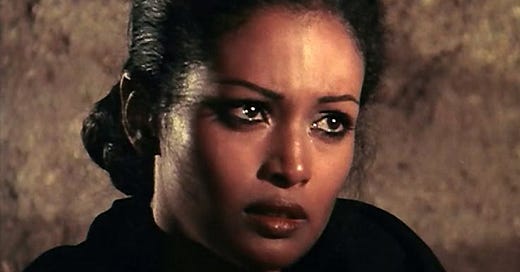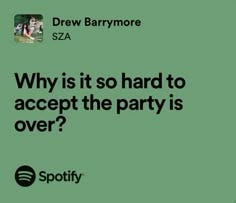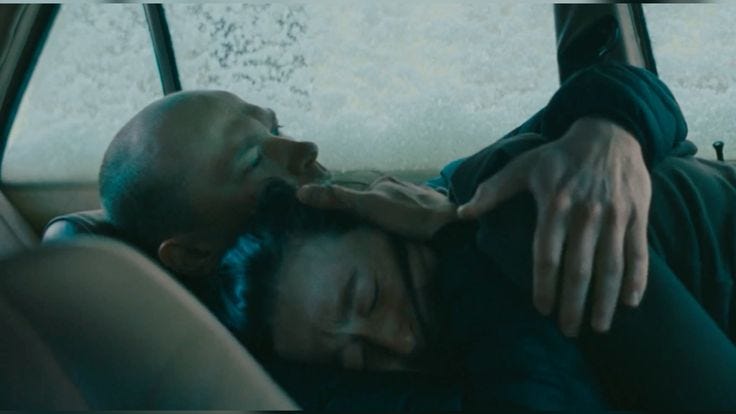Soap Box vol. 1: How's the World Treating You?
".. And we have done monstrous, shameful things to survive." - Tolu Oloruntoba
I used to be a party girl.
I was eighteen, still in the crest of innocence. The colored strip lights deep in the bowels of fraternity basements and late-night kickbacks devolved into thumping house parties, echoed my name with the seductive lilt of a siren’s song. I donned my finest Forever 21 bodysuits, paired with the tightest ripped skinny jeans money could buy, before surrendering to the night.
I didn’t know then that my naivete was a weapon that could be wielded against me, leaving me crumpled and disillusioned. For years after, I told myself I should have known better - as if the shame and disgust could somehow erase what happened. At the age of eighteen, I lost my girlhood and spent the years that followed desperate to find a way back. Time marched on, dragging me from the arms of my youth, leaving me to sort through mismatched piles of regret. SZA’s earth-shattering debut LP “Ctrl” soundtracked the mourning. I still don’t know if the wound ever fully closes; you just get used to it.
When I saw Anora (2024) directed by Sean Baker, for the first time, it split me open. Hidden in the life of Ani, the titular character and a sex worker based in Brooklyn, were memories of a pain I’ve witnessed. Her life was governed by the performance of seduction as a means of survival. We watched as her body contorted in the thick heat of neon lights. What was displayed as freedom at 10 PM felt like fire by 5 AM. When Ani meets Ivan, an arrogant and useless oligarch’s son - she marries him, and for a moment, it seems as if she’s shed all her financial woes for good. Ani’s “Cinderella” story abruptly derails by the second half of the film. It shifts to a “screwball comedy” of idiot men, paid to track down Ivan, Ani in tow, despite her vehement protests.
If you haven’t seen the film, you’ve probably heard it won the Palme D’or at the Cannes Film Festival or Best Picture at the Oscars. During my screening, there were frequent snorts of laughter at Ani’s most vulnerable moments. I was stunned and infuriated by how casually the violence and coercive control levied against her were treated as a punchline designed for uproarious laughter. Still, it was easy to empathize with Ani and horrifying to watch all that was stolen from her. The meditations on capitalism weren’t enough to win me over, but the film did leave me thinking.
What does it mean to be a woman? In some caverns of the internet, woman is synonymous with consumption. Preventative botox, teetering shelves stacked high with the latest La Roche Posay, Summer Friday, or La Neige products, and mastery of makeup trends reeking of physiognomy all deemed necessary to reclaim one’s “feminine energy.” On the opposite side of the internet, some reject the gender binary altogether as an oppressive capitalist myth, backed by theory from authors like Kyla Schuller, bell hooks, and Angela Davis. Though the nebulous definitions and mass confusion may feel like a result of the social media age, in the year 2000, bell hooks pointed out that “simply being the victim of an exploitative or oppressive system and even resisting it does not mean we understand why it’s in place or how to change it.” (Feminism is for Everybody: Passionate Politics)
Despite varying beliefs, one point of consensus I found was the lasting ramifications of violence. The statistics are bone-chilling and familiar: 81% of woman will experience some form of sexual violence in their lifetime. 40% of Black women will experience domestic violence. 56% of the victims of fatal hate crimes motivated by anti-trans violence in 2024 were black transgender women. Does being a woman mean forever living in fear?
Molly Manning Walker's searing debut, How to Have Sex (2023), premiered at the Cannes Film Festival, winning the Un Certain Regard award. It landed internationally on Netflix, and I could stomach watching it about a week after Anora’s Oscars win. The camera trails a trio of British girls on holiday in Greece after their A-level exams. The story centers around Tara, a boisterous virgin, the sometimes noxious relationship between Tara and Skye, her insecure and jealous best friend, and their quirky and reliable third Em.
The girls have no parental supervision, access to a never-ending supply of alcohol, and a shared hotel room next to a group of older and desirable boys. The circumstances create catastrophic meditations on consent, memory, and swallowed grief too many women are forced to contend with. What’s most insidious is how normalized these experiences are, a mirror held to the depravity of our own culture. By the end of the film, my old wounds reopened, and emotions I long thought were buried came barreling to the surface. Sometimes, there aren’t words for the feeling, yet art has a way of nestling in the aching parts and calling attention to throbbing hidden truths. How to Have Sex was everything Anora could never be, a brutally honest portrayal handled with care, of innocence lost, never to be found again.
Lately, I’ve been listening to Charli XCX’s “i think about it all the time remix featuring bon iver.” I’m stunned by the revelation that my childhood is gone, and it’s never coming back. For the first time, I think about the daughter I want to have and how to keep her safe. How do I give her safety that doesn’t feel like suffocation? How do I shield her from the lessons in resilience that life forced me to learn? I think of my Mother; I do not know the horrors she’s witnessed, though I know who she had to become. Is it naive to hope we are the generation capable of breaking the curse?
Diddy’s trial started last week. While eight and a half months pregnant, Cassie Ventura Fine, his ex-girlfriend of 11 years, testified for four days about the atrocities committed against her by Diddy and his team. In the court of public opinion, her documented abuse was dissected, criticized, and disavowed. It’s as unsurprising as it is disappointing. Much of the sympathy from men online was extended to her husband, Alex Fine, for “saving her” from Diddy’s wrath and embracing her history of abuse. After the conclusion of her testimony, Cassie and Fine released statements. Cassie graciously thanked her supporters and shared hopes her testimony could empower other survivors. Fine’s statement highlighted Cassie’s strength in testifying about Diddy’s cruelty and freeing herself from the shackles of his abuse. Fine concluded his statement by pointing out what should have been obvious: Cassie saved Cassie, and she continues to do so. How can three words be so firm and clarifying? He’s right, Cassie saved Cassie. My Mother saved herself. And I saved me.








